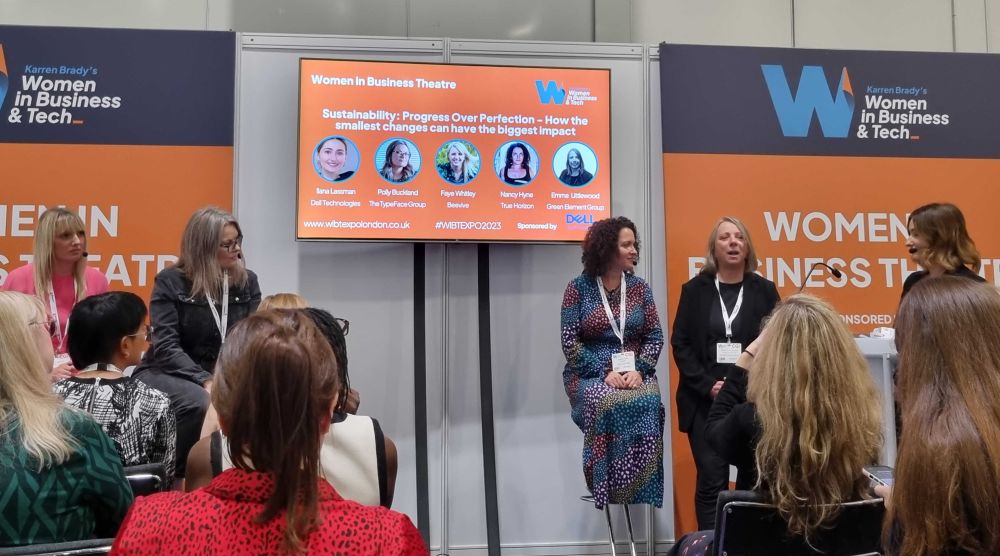Unboxing the trends of women in tech

Under the grey London October skies, two of our intrepid broking team, Kaleigh Thomas and Kim Johnston, attended the Women in Business and Tech Expo to talk all things tech.
With women making up only 26% of the tech workforce, we’re unboxing the challenges facing women in this industry and the trends we’re seeing from female founders.
Equality doesn’t equal fair
Gender diversity in tech continues to be a struggle, and there are a number of things holding women back. Globally, women account for 47.7% of the workforce, yet in tech, they account for just 26.7%. From pervasive societal gender norms to biased hiring practices and workplace cultures, tech has historically failed women.
Peppered throughout panel and keynote speeches was the sense that seismic shifts in behaviour are needed to allow women to break through and narrow the gender gap in tech. Flexible working patterns and part-time hours to allow for childcare, continuous challenging of unconscious biases and anonymous CVs were some of the many suggestions proposed.
Deliveroo’s Head of Global Diversity, Equality and Inclusion, Busi Sizani, spoke about the need for workplace equality and equity at length. She started with the definitions: equality is giving everyone the same resource to reach a destination; equity recognises each person has different needs and requires different resources in order to achieve an equal outcome.
She went on to argue that most people are unaware of how needs may differ until it affects them personally, and that the workplace needs to be shaped for those of specific needs, not for the comfort of the majority.
The main takeaway from her talk is the need for us all to be aware of others and to care.
The deception of imposter syndrome
At one time or another in our lives, we have likely each felt imposter syndrome creeping in. Defined as a persistent self doubt and fear of being exposed as a fraud – despite having skills, accomplishments or potential – imposter syndrome can hit anyone, but more commonly affects women.
A 2023 survey by KPMG found 75% of female executives have experienced imposter syndrome at some point in their career, and so it was a common theme throughout the two days. But there were also some great tips to overcome niggling self doubt, as imposter syndrome was pitched as not always a bad trait to have.
When acknowledged, imposter syndrome can increase empathy, leading to better relationships. It can improve diligence and strengthen mental health and resilience. There were also tips given to overcome it, like making peace with self doubt, having female leaders speak up about their experiences and finding role models or finding a support network.
The overarching takeaway was the need to continuously celebrate achievement and develop a growth mindset by embracing failures through self-compassion and continuous learning and skill development.

Seeking sustainability
There has been no conference in recent memory where sustainability wasn’t one of the key focuses, and the Women in Business and Tech Expo was no exception. Many female-founded businesses have a focus on sustainability.
In their panel session, Sustainability: Progress Over Perfection, Ilana Lassman, Head of Social Impact and Corporate Sponsorships at Dell, Polly Buckland, Founder of The Typeface Group, Faye Whitley, Co-founder of Beevive, Nancy Hyne, Founder of True Horizon and Emma Littlewood, Co-founder and Strategy Director of Green Element Group, discussed how the smallest changes can have the biggest impact.
When it comes to running a business, from fundraising to day-to-day activities, sustainability is survivability. It’s the key to future-proofing businesse – and no matter the size of the company, there are steps firms can take to have a better chance of survival, a lot of which start with free tools and collaborating with sustainability focussed organisations. From the SME Climate Hub to B Corp, the future of business comes from community and collaboration.
This content has been created for general information purposes and should not be taken as formal advice. Read our full disclaimer.



